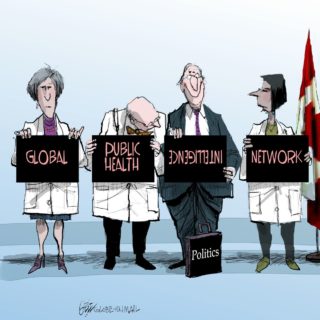Russian President Vladimir Putin has doubled down on his war against Ukraine, ordering a partial mobilization of reservists and warning that his country was willing to use its nuclear arsenal if Russian territory was attacked.
Mr. Putin’s definition of what is and isn’t Russian territory is about to change to include large swathes of Ukraine. He used a televised speech on Wednesday to declare his support for stage-managed referendums that Russian-installed officials are planning to carry out later this week in the Donetsk, Lugansk, Kherson and Zaporizhzhia regions.
Though the Russian military only partially controls those four regions, the sham votes open the way for Mr. Putin to illegally annex the areas, as he did in 2014 after a similar process in Russian-occupied Crimea.
The announcements come after weeks of battlefield defeats that have seen the Ukrainian army drive Russian forces completely out of the eastern Kharkiv region. Ukrainian officials have signalled their intent to continue the counteroffensive into parts of eastern and southern Ukraine that Russia still occupies. The snap referendums will raise the stakes by allowing the Kremlin to take new measures to defend soil it claims as its own.
“If the territorial integrity of our country is threatened, we will without doubt use all available means to protect Russia and our people – this is not a bluff,” Mr. Putin said in a prerecorded speech that was broadcast on all Russian TV channels Wednesday morning Moscow time. He was originally supposed to make a live address on Tuesday night, but the speech was held instead until all regions of Russia were awake.
Mr. Putin cast his country as being locked in a struggle – though he again avoided the use of the word “war” – with not just Ukraine, but with the “collective West.” He alleged that the United States and the North Atlantic Treaty Organization were directing the Ukrainian military and said there was a plan to break Russia apart the same way the Soviet Union had collapsed into 15 separate countries at the end of the Cold War.
“In Washington, London and Brussels they are directly pushing Kyiv to shift the military action to our territory … they talk about how all available means should be used to destroy Russia on the battlefield with the ensuing loss of political, economic, cultural and all types of sovereignty and the total plundering of our country,” Mr. Putin said.
The dangerous logic behind Russia’s plans to formally annex occupied Ukrainian regions
He said the West had raised the spectre of “nuclear blackmail” – pointing to the situation at the Zaporizhzhia nuclear power plant, which is under Russian military control, and which went into a cold shutdown earlier this month. Russia and Ukraine accuse each other of risking a disaster by firing artillery shells near the plant. Mr. Putin said Western leaders had also spoken about possibly using nuclear weapons against his country, though no major figure has publicly made such comments.
“To those who allow themselves such statements regarding Russia, I want to remind you that our country also has various means of destruction, and in some components more modern than those of the NATO countries,” Mr. Putin said.
The speech swiftly drew sharp criticism from Ukraine and the West. Mykhailo Podolyak, an advisor to Ukrainian President Volodymyr Zelensky’s chief of staff, said the speech showed “the war is clearly not going according to Russia’s scenario and therefore required Putin to make extremely unpopular decisions to mobilize and severely restrict the rights of people.” British Defence Minister Ben Wallace said the measures announced by Mr. Putin were “an admission that his invasion is failing.”
U.S. President Joe Biden is scheduled to address the United Nations General Assembly in New York later on Wednesday. Mr. Zelensky is also due to address the gathering by video link.
In Beijing, Chinese Foreign Ministry spokesperson Wang Wenbin told a regularly scheduled press conference that “all countries’ legitimate security concerns should be taken seriously, and all efforts conducive to the peaceful settlement of the crisis should be supported.” While China was initially seen as supportive of Russia’s justifications for invading Ukraine, Mr. Putin said Chinese President Xi Jinping had “questions and concerns” about the conflict when the two leaders met in Uzbekistan earlier this month.
Defence Minister Sergei Shoigu said Russia initially planned to call up 300,000 reservists who already had combat experience, from a much larger pool estimated at 2 million. A presidential order posted on the Kremlin website put no restriction on the number of people who could be called up.
Mr. Shoigu said Russia had 25 million potential conscripts, but said the military would not be dragging people unwillingly off the street, as happened during Russia’s two wars in Chechnya in the 1990s and early 2000s.
Mr. Shoigu said 5,397 Russian soldiers had been killed in Ukraine since the start of what the Kremlin calls its “special military operation” on Feb. 24. Ukrainian and Western officials have estimated the Russian death toll to be many times higher, even before this month’s offensive around Kharkiv.
The Kremlin is believed to have waited to declare a partial mobilization out of fears of backlash from Russian society, which broadly supports the war but has so far been largely unaffected by it. Immediately after Mr. Putin’s speech on Wednesday, the Vesna youth movement called for protests across Russia.
“Thousands of Russian men – fathers, brothers and husbands – will be thrown into the meat grinder of war. What will they die for? Why will mothers and children shed tears? For Putin’s palace? Now the war will truly come to every home and every family,” Vesna said in a statement posted to its Telegram channel.
Criticizing the war, or “discrediting the armed forces,” was made a crime in Russia earlier this year. Convictions on certain charges can lead to sentences of up to 15 years in prison.
MARK MACKINNON
SENIOR INTERNATIONAL CORRESPONDENT
The Globe and Mail, September 21, 2022

